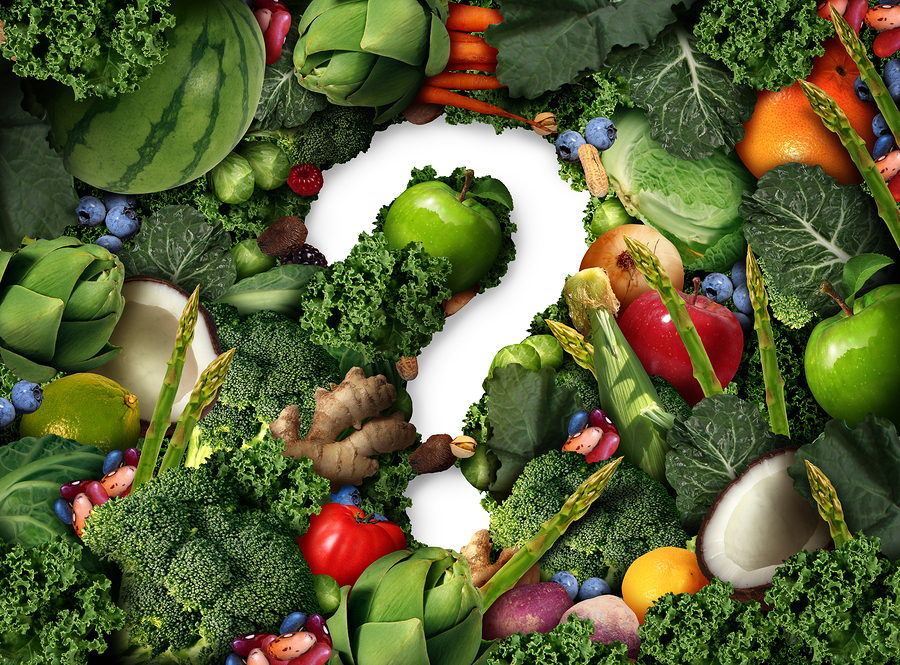- Make It Yourself Lavender Heart-Shaped Bath Bombs!
- 20 Things You Never Knew About “Down There”
- 12 Best Foods For Those Suffering From Arthritis Pain
- 12 Personal Hygiene Mistakes Almost Everyone Makes (Mom Never Told You About #4!)
- 15 Medicinal Plants And Herbs From The Cherokee People
- 12 Mind-Blowing Benefits Of Drinking Coconut Water During Pregnancy
- 12 Outstanding Winter Foods That Won’t Fatten You Up Like A Christmas Turkey
These Foods Will Boost Your Psychological Well-Being
How do fruit and vegetables influence mental health?
The main benefit is that fruit and veggies contain water-soluble vitamins which are readily absorbed by the body and are available for immediate use. These include minerals such as potassium, and vitamins like folic acid, and other B vitamins, which have an impact on serotonin levels in the brain, which is known to relieve depression and anxiety.
Water soluble vitamins are beneficial with a current, or very recent, intake. Fat soluble vitamins need the presence of fat to dissolve and be absorbed by the body, and are stored in the tissues until needed.
They cannot therefore give you the quick boost or lift that water-soluble vitamins can offer.
Here is a list of foods that can improve your mental health for good:
- Leafy greens such as spinach, turnips, lentils, beets, and mustard greens are high in folic acid and B vitamins. Deficiencies in folate and B vitamins have been linked with high rates of depression and fatigue.
- In addition to the B vitamins, broccoli also contains traces of selenium, which helps to keep depression, anxiety, and fatigue at bay.
- Legumes like beans, peas, and lentils contain chemicals and protein which provides the mood-enhancer, serotonin, to the brain, promoting feel-good feelings.
- Potatoes are also rich in water-soluble vitamins for that instant lift.
- Citrus fruit like oranges, lemons, limes, grapefruit, and clementine are all extraordinary high in vitamin C, another water-soluble vitamin for a great boost of energy and vitality.
- Berries, blueberries, or blackberries are also noted as water-soluble fruits that provide an instant mood-lifter.
According to the US Department of Agriculture, adults should aim to eat about two cups of fruit, and two or three cups of veggies per day. Note that one cup of fruit is more or less the equivalent of a half grapefruit or one large orange. While one cup of vegetables is about equal to one serving of squash, or a medium to large baked potato. Otherwise you can measure it out as you prefer in a cup of peas or beans, etc.
Further research
What should also be added here, in context of what is a truly healthy diet, is that a number of studies have revealed that the average American diet is woefully lacking in essential omega-3 fatty acids. The body cannot manufacture these essential fatty acids, so we have to get them from our diets.
The best source is obtained from fish like salmon, tuna, mackerel, and sardines which are high in natural omega-3.
Omega-3 has a positive effect on the brain chemicals which affect our moods, and there is scientific proof that omega-3 has the potential to reduce symptoms of depression, anxiety, and ADH, among other mental disorders.
READ ALSO: This One Vitamin is Vital for Your Health and Mental Well-Being
The bottom line
The consensus among researchers is that feelings of good well-being and a balanced mood can be maintained by a diet which includes healthy carbs, essential fatty acids, adequate amounts of fruit and vegetables, and a reduction of toxic foods made from refined flour and sugars. And it is so much easier to follow this advice than you would think. Just make a decision and give a try to stick to it.
References:

































